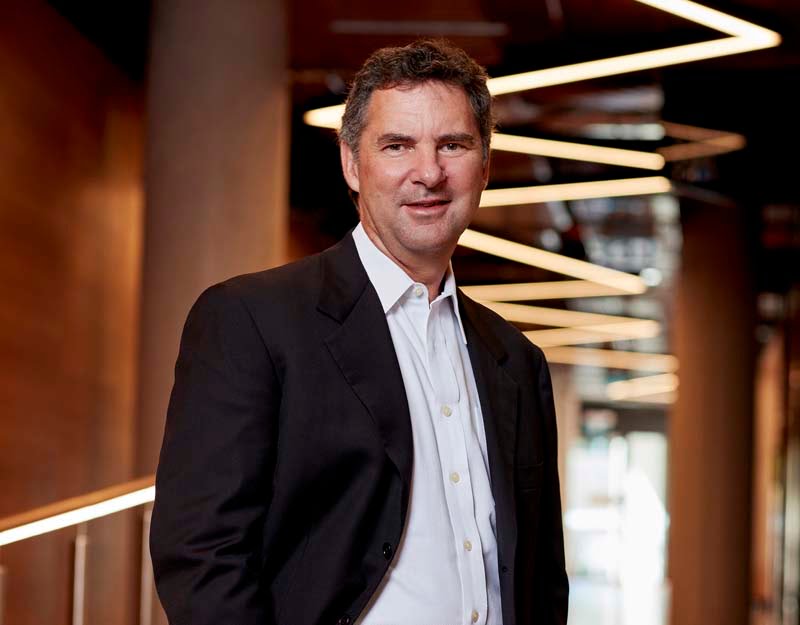Outgoing CSIRO chief executive Dr Larry Marshall has named the 10 deep tech teams challenging “old school paradigms” that will participate in the first edition of the ON Accelerate program for two years.
The teams behind innovations ranging from RegTech and material sciences to the Internet of Things and vaccines will complete an in-person ‘immersion’ week in early February 2023, followed by the full 14-week program which will include online delivery.
The accelerator aims for teams to become a viable startup by helping them develop a solid business model and a clear path to commercialisation, according to CSIRO.
One participant from the 2023 cohort will also receive the Stanford Australia Foundation – CSIRO Acceleration Scholarship, which will cover fees and travel to attend a short course at the Stanford Graduate School of Business.
Teams spawned within CSIRO were the most frequently supported, with three selected. Monash University is represented by two teams in the latest round of the ON Accelerate Program.
Four of the remaining teams are associated with the ANU Research School of Physics’ DeepTech incubator Momentum, the Walter and Eliza Hall Institute of Medical Research, the Telethon Kids Institute, and the University of Technology Sydney respectively.
Northern Queensland startup Rainstick is working with researchers at James Cook University to combine indigenous knowledge systems with modern electrokinetics to increase the yield of fungi and other plants through natural systems.

The successful teams are:
- DHI (Monash University) for an AI powered RegTech tool to improve identification of discrepancies of listed companies’ disclosures
- Green Shield (Monash University) for object camouflage materials, including radio frequency shielding
- v2Algae (University of Technology Sydney) for BioTech specialty ingredient manufacturing, in partnership with v2food
- Rainstick (James Cook University) for improving the growth rate of fungi and plants’ natural systems to increase yield
- The SpritzOM (Telethon Kids Institute) for a low-cost nasal vaccine to prevent ear infections. CSIRO notes that “there are no approved vaccine that successfully targets the major pathogen responsible for the most common ear infections”
- Walter and Eliza Hall Institute of Medical Research’s Application Development team for an information system for managing animals in research environments to improve ethical treatment, efficiency, and lower costs
- Thaum (ANU Research School of Physics’ DeepTech incubator) for WhalePOD, vision capabilities which helps offshore industries implement harm mitigation strategies against marine mammals
- Cognitag (CSIRO) for improving IoT device capabilities
- Reduced Sugar Juice Team (CSIRO) for naturally reducing sugar content of juice drinks by up to 70 per cent without negative nutritional impact
- UpCell (CSIRO) for efficient and scalable process technology to produce food-appropriate specialised performance proteins
Speaking at the launch of the program, Dr Marshall said the ON program is a crucial part of solving Australia’s innovation dilemma.
“We still think invention is innovation, we celebrate papers not patents, and we count how many citations we received, not how many jobs we created,” Dr Marshall said.
Since the program was established in 2015, Dr Marshall said it has supported more than 3500 people from 52 research organisations, with 66 new companies subsequently formed by participants. These companies employ more than 500 people and have raised more than $110 million in investment capital.
“ON recognises that innovation thrives on diversity, on doing things differently. ON gives scientists the skills and confidence to pivot away from the ‘publish or perish’ mentally and consider new pathways to make a difference,” Dr Marshall said.
“When you challenge those old school paradigms and give different people the support they need to take their thinking forward you can quite literally change to world – and drive financial performance, create new jobs for the future and reinvent whole industries.”
He added that CSIRO has similarly applied this philosophy to flip from decline to growth while boosting diversity in appearance, thought, and action. A huge part of the organisation’s success is put down to improving collaboration across the government, research, startups, and venture capital.
“[We’ve] literally doubled the value created by CSIRO – delivered $1.5 billion of cash while prior strategies delivered decline – grown our startup equity portfolio 20x, which has fed 400m of new investment into pure science targeted at solving Australia’s greatest challenges like getting to net-zero. In fact, despite all that growth, CSIRO is 70 per cent of the way to net-zero.”
In the introduction to his speech, Dr Marshall pronounced that “Team Australia can create a whole new pillar of the economy grown from the wellspring of our minds, a well that can never run dry.”
The 2023 edition of ON Accelerate is the first time the ON program has been run in the last two years. The original ON program received $20 million over four years through the Turnbull government’s National Innovation and Science Agenda.
Of the 40 teams that applied, 20 were selected to participate in a bootcamp run by Main Sequence and other DeepTech venture capitalists in November. From this pool, the final 10 were selected to participate in the full program.
Do you know more? Contact James Riley via Email.
